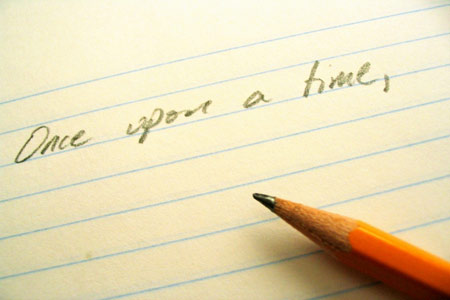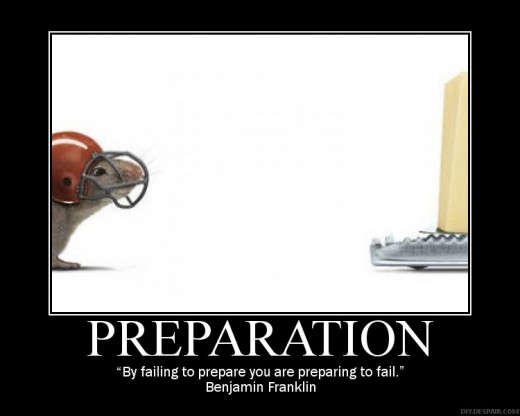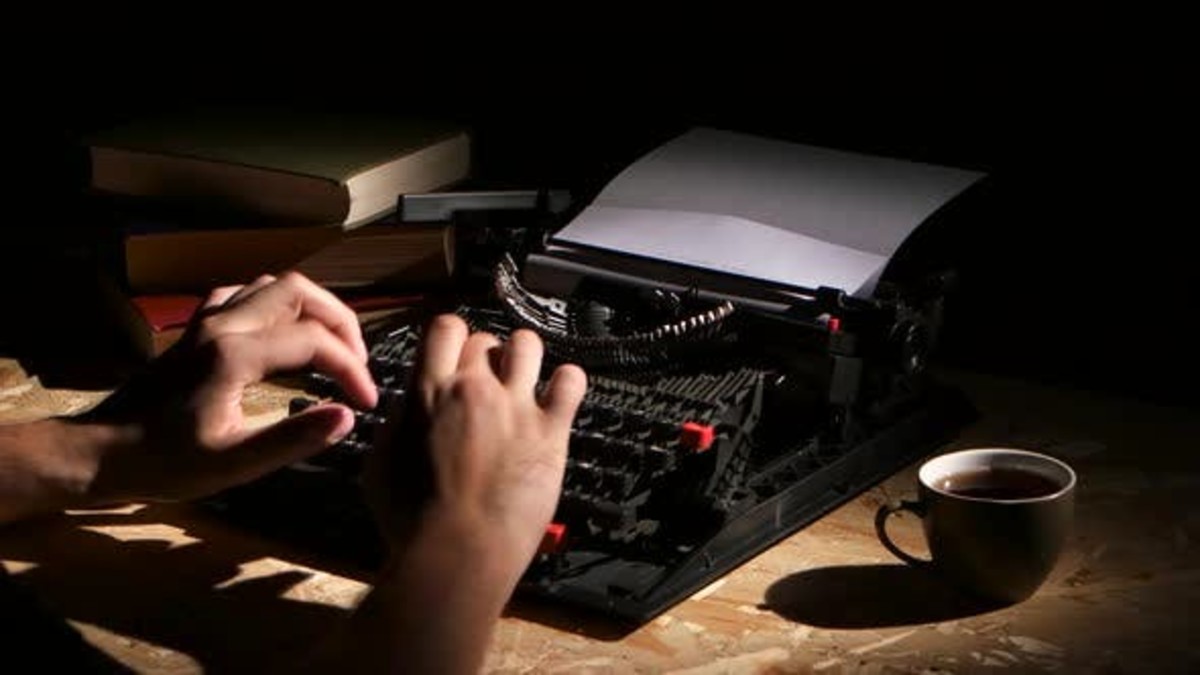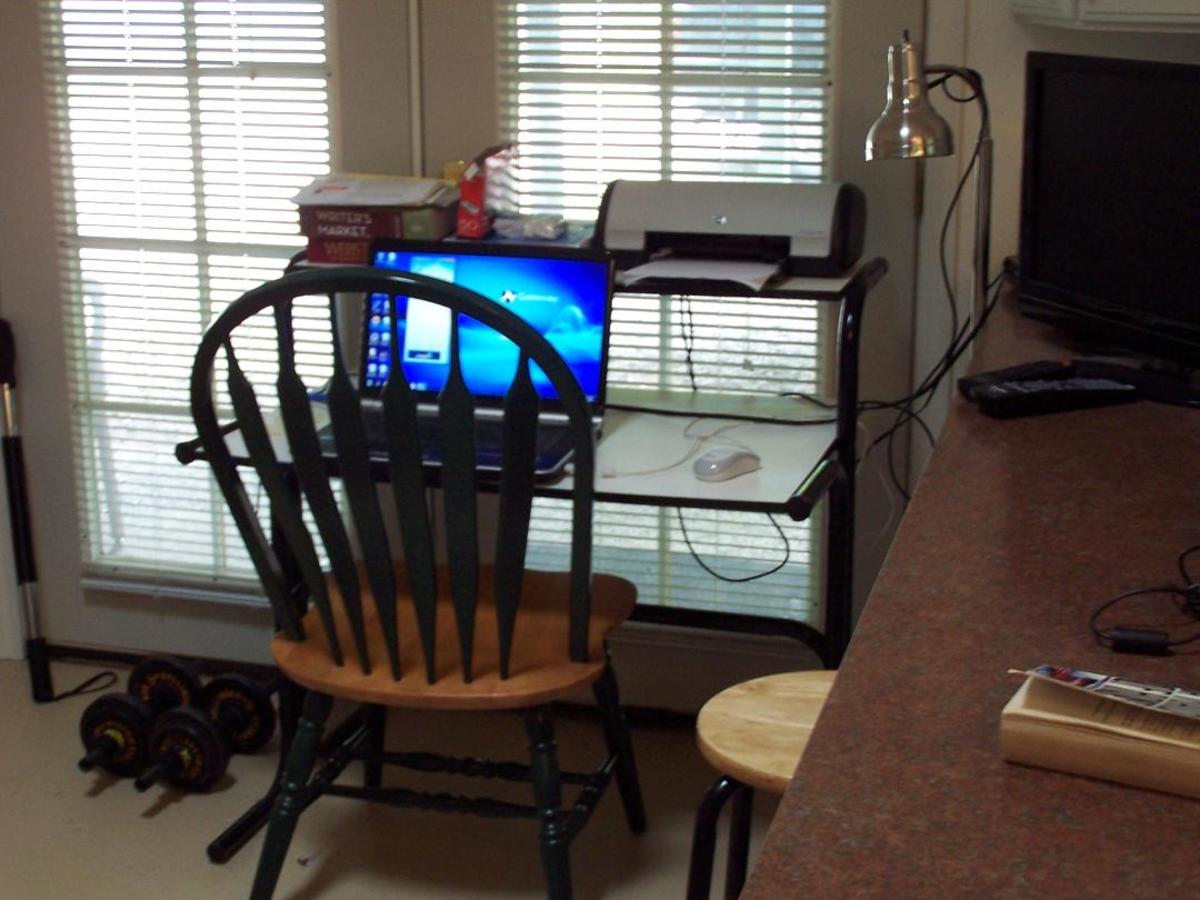How To Start Writing

Introduction
Okay, so yesterday I discussed a few things about writing Fantasy works. It was pretty broad because I really wanted to have a great first hub. Today I am actually starting my first day writing my next four book series.I really want to tell everyone how they should prepare for their first day writing a work and what things you should have done and should do during your first day as a writer. If you've written other book or long format works, it'll come very naturally to you. On the other hand, most beginner writers have no idea where to start. That's completely normal. Heck, sometimes I don't know what I'm doing either. That's just life. Things come up, it keeps your distracted. But today is your first day writing, so NO DISTRACTIONS.

Prerequisites
So there are quite a few things you should have done while you were getting revved up for your first day writing. I've already discussed getting excited and hopefully by the time you actually start writing, you're still enthusiastic and ready to get your story down on paper or on Microsoft Word (or some other word processor). Here are some things that should have absolutely been done prior to your first day of writing.
1. Research: Have you completed all necessary research for your new work? This is so important because you don't want to get keyed up and engrossed only to discover you really don't know all the details to include in your work. This is especially important if you are writing nonfiction or fiction based closely on true events.
2. Characters: Have you created all the necessary characters for your story? Do they have traits, flaws, goals? Do you know why they make their decisions or what makes them angry? The most important part of any work is character. Sure the plot is important to, but we always come back for the characters. Think of some great books with vivid characters and not so vivid plot. You loved it anyway right? Your job is to put your characters into situations that will in turn thrust your plot forward. Other things you need to know about characters are names, motivators, and their role in the story. This should have been decided before you begin writing, or else it's just confusing.
3. Plot: What are your characters doing? Your plot doesn't need to be overly complicated to be interesting. It just needs your characters acting as themselves. He or She must be riddled with conflict. Those are relationships (between other characters), internal (morals and values) or against the world (politics or religion). Your characters and their way of life is what your plot should consist of. You should have a good grasp of what's going to occur beforehand. At least the first ACT.
4. Structure: Sometimes it helps to put a structure to your work. The the Three ACT system works wonders. The ACT I is the beginning, the first 3rd of your book and should including the inciting incident (the incident that causes the plot to move forward). ACT II consists of over half your book and must have consistent conflict throughout. This doesn't have to be action or violence but maybe a disagreement or a battle against oneself or one's emotions. Sounds interesting enough to get them through to ACT III? ACT III is the end of the book, helps create the rising action, falling action, and resolution. You should have a good idea of how your structure works.
5. Setting: If you're writing a fantasy or science fiction, know your setting. Have your world mapped out with cities and villages and know the way of life for these people. The setting is the backdrop and is important to the story.

Sitting Down
Once you've met all the prerequisites, you should feel pretty confident about getting a start on your work. However, you must realize a few things as you sit and begin writing. This will help with any frustration or negative feelings that may runt through your mind.
1. It doesn't sound that great: As a writer you must understand that what you write down at first might not sound all that great, but you can't let it discourage you. The best way to think is to remember that what doesn't sound right now, might sound better in the future.
2. I've been sitting a few minutes and nothing is on the screen: Just calm down, take a deep breath. Get up and move around a bit to clear your mind. A blank screen is scary. It makes a writer feel "I'm a failure, I can't come up with anything. I have writer's block." Guess what? Just put something down anyway, meet your daily word count goal to have something down. Once the draft is finished, something better will come to you. Then you can go back and insert that new text.
3. I'm having trouble with the start. I don't know why: Sometimes despite your planning, the beginning is a bit muddled and confusing. My advice, take your time. Don't rush the beginning because it will only make these worse. Let the reader adjust to your characters and prose and then try to move things forward. Patience is the best answer for this problem.
4. I was supposed to start today, but I chickened out: No, sit back down. Don't chicken out when you sit down and go on Facebook and tell your friends "I'm supposed to be writing". If you are a serious writer, fully commit to the activity. Let yourself become excited about the gift of storytelling. Log off of Facebook, turn off the TV, put away any other distractions and get to it.
5. I'm so tired, I've been writing for five hours straight!: Don't overdo it. If you sit for five hours on the first day you're going to burn yourself out pretty fast. First day, do about an hour or an hour and half and call it a day. When you pick back up the next day maybe go a little longer if you can. You have to pace yourself. You have to remind yourself that writing is just difficult as any other job. It takes a lot energy and time.
Save The Document Or Put Away Your Pad
Once you've written for a little while, an hour or two. Take a deep breath of relief that you've completed your first day of writing!! How does it feel? If it feels good, that's great! It might not feel too great if you feel unsure or uncertain about the quality of your prose. Well it's just a draft, you've got plenty of time to perfect it once the draft is complete. That is when you go back and make things all shiny and spectacular. Until then, just put what you can down, get your thoughts fleshed out and write as much as you can.
1. Save your document or put away your pad where you can find it!: Don't lose anything you write. It's a scary thought when you discover you might have mishandled your hard work.
2. Make a note of where the plot is going: Sometimes you forget what you wrote and what you had planned to write following that, just write it down and put it in a safe place. Make yourself a bookmark per se so you know where to pick up.
3. Remind yourself you can do this: Sometimes after the first day, a writer might feel like "I don't know about this." That is the best way to quit now. Just say "I can do this" and "it's so fun and exciting."
4. Make a schedule or plan to come back: Prepare yourself mentally for your return to writing the next day. Make a plan or keep a schedule to give yourself plenty of time to decompress and return with new vitality.
In Conclusion
Be prepared, get a nice start, come back again. It's pretty easy really. Just remind yourself continuously to do a little writing each day or a lot, depending on your preference. It doesn't hurt take a break here and there if you need it, but don't stray to far away. The longer you're gone, the harder it is to come back. Don't let writing become a stranger. Make good strides starting out on your first day! :)








